"My Daughter and Son-in-law were Murdered, Leaving 6 Orphans. But Even in Grief, There is a World of Kindness": An Empowering and Painful Interview
Avraham Herzlich, 81, is an American who grew up in the big world, then left it all for Torah study, service to Hashem, and tending the flock. In a fascinating interview, he reveals the harsh tragedy that befell him and how one rises from nothing.
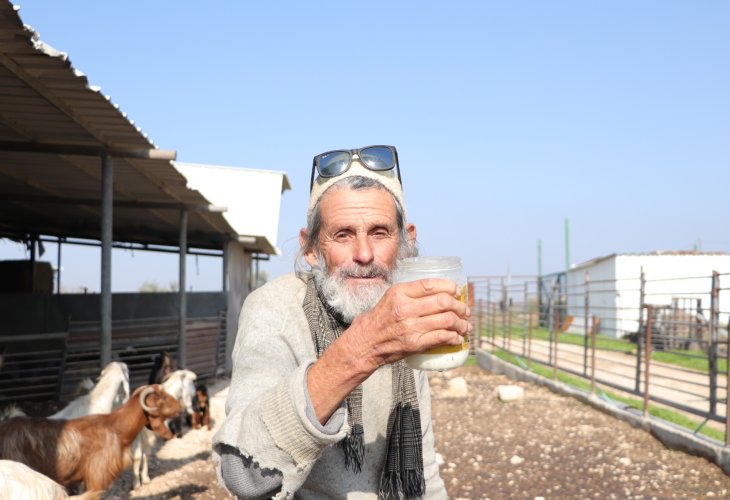 Avraham Herzlich
Avraham HerzlichAvraham Herzlich (81) saw the big world of America and was among the first five people to drive a luxury Ferrari car. Now he resides in the village of Tapuach, spending his day studying Torah while tending to the sheep in the nearby hills. "My goats are currently in the field near the Arab village 'Yasuf', we go out early morning, like every day," he says with a smile.
Herzlich sits on the ground, not a chair, emphasizing that grazing is his ideology. "The government built big cities and disconnected people from the fields. When I sit on the ground, I feel it and connect to it, 'And I will give grass in thy fields', and here too I feel Hashem more, 'the King in the field', and I speak with Him".
When I innocently ask Herzlich how many goats he has, I realize I've touched on a very sensitive point "Today I only have 50 goats because a few years ago, our cousins, the neighboring Arabs, stole a herd of 400 goats from me in one night. The verse says: 'And he will be a wild donkey of a man; his hand against everyone, and everyone's hand against him, and he will dwell opposite all his brothers.' This is not just words; the Torah witnesses it, and we experience it here day by day, hour by hour".
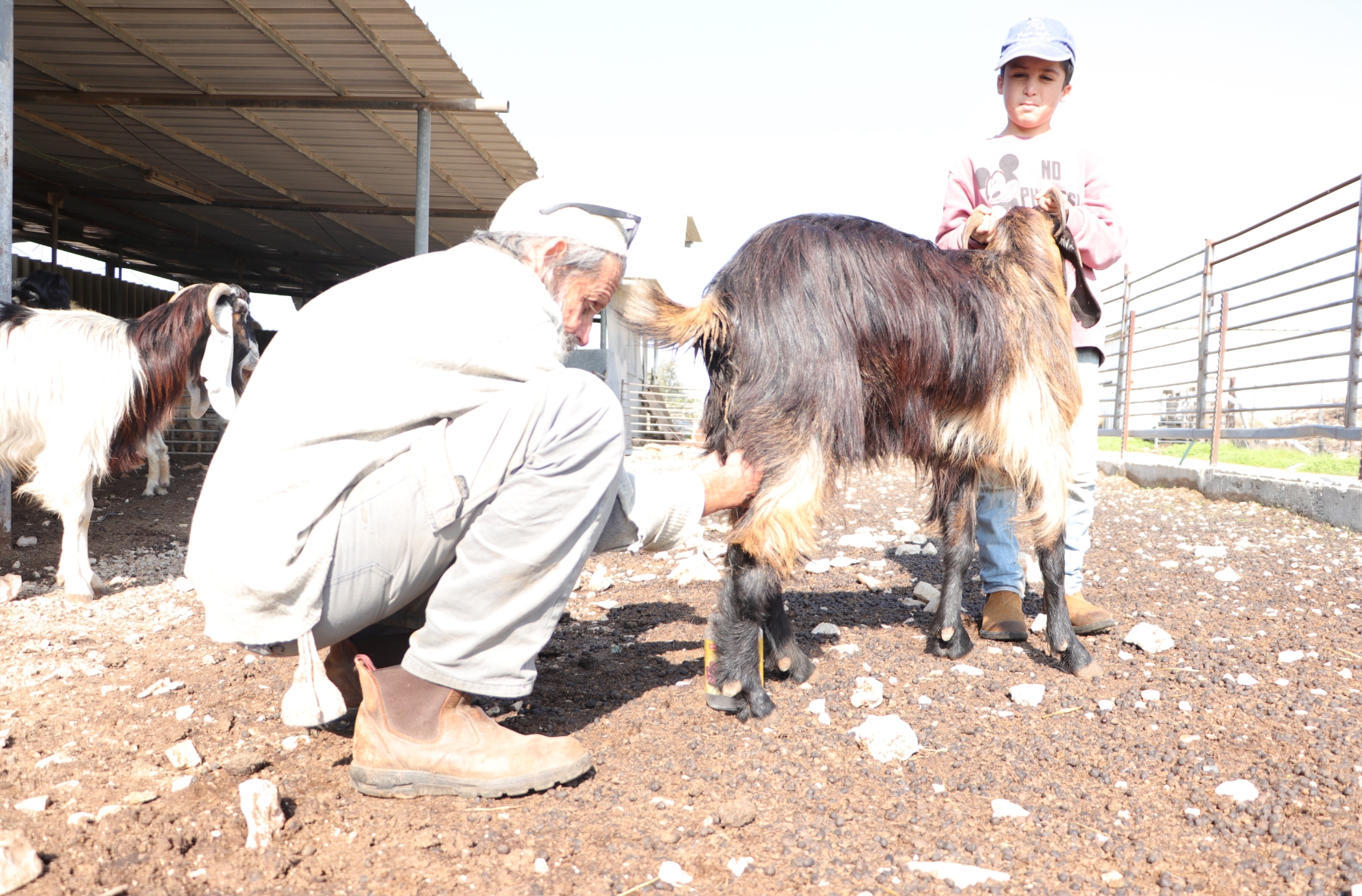
Do you send the goats to graze alone?
"No. I'm always with them. The theft occurred when I was with the goats outside the village of Tapuach, further south towards Ofra and Rehelim. We went far to the winery hill near Psagot, for those who know. Early morning, I got into the truck, laid my head, and fell asleep. When I woke up, I realized that in those minutes, the Arabs took advantage of the situation and stole the entire herd. It was a very great distress because I am connected to the pasture, the land, and the flock. And it's not the first story; there have been more theft cases, always, but this was the hardest case that left me with nothing".
Tapuach, Psagot, Ofra, Rehelim, for those who don't know, these are settlements located far beyond the green line, close to the most hostile villages in the territories. The obvious question is how do you really protect yourself in such a hostile place. Do you have a weapon?
"Thank Hashem I have no fear in the field, and even today, I have no weapon. In the past, I did, and it helped me a lot when I entered a place full of Arabs, and they started chasing me. I had a 16. I cocked it, and they ran away, but today I don't, and I also make an effort not to distance myself from the settlement. I have a very serious dog that helps me all the time find the goats that disappear from time to time. I ask him where they are, and he leads me".
Drove Luxury Cars
I understand you weren't born in the village; when did it start for you?
"I was born in big America, grew up in a secular Jewish family in New York, not Reform or Conservative, but not religious at all. All I knew was that there is Passover and Yom Kippur; there started my Judaism, and there it also ended. I grew up in the modern world, into matter and physicality, I didn't even know what animals were. I met the world's rich, accompanying them on their travels in Europe, Mexico, and Cuba. My role was to bring them the cars; they were the only ones who had sophisticated race cars. From the age of eighteen, I already had a quality motorcycle and started driving Ferrari race cars. We even had a race me and a friend drove from New York to Florida, about a 2500 km distance. I will never forget that one of the great rich, who was not lacking anything, bought his son a Ferrari car as a gift. A few days later, he had a race with a friend, and in a car accident that occurred, he ended his life. It was horrible; the boy was killed by his father's gift. That's why today I don't drive at all; the only tool I have is a quad bike, and even on it, I drive very little. These are destructive tools that kill people, especially motorcycles that kill people on a daily basis. It horrifies me every time, especially when I remember my times; back then, you didn't have to wear a helmet".
Herzlich is excited as he tells me about the conclusions he reached. "After all the global journeys, I returned home to Brooklyn and felt an emptiness spreading over me. When I was 23, I decided I wanted to go up and see the Land of Israel. I bought a ferry ticket and traveled for two weeks until I arrived in the country. The feelings at sea are amazing; you can feel the Creator of the world and the universe there. Sea, waves, sunset, stars, moon. Just as it is written in the verse 'They that go down to the sea in ships, that do business in great waters: They see the works of the Lord, and His wonders in the deep.' I began to feel the existence of the Creator".
A young man comes to Israel without a family, where are you heading?
"Immediately upon my arrival to the holy land, I decided I was staying here. The authorities sent me to learn Hebrew in an ulpan in Jerusalem, and then I realized it wasn't Hebrew; it was the holy tongue. I felt holiness in every word of the holy tongue and was very connected. After that, I started studying at the Hebrew University of Jerusalem".
Herzlich is an American Jew, but when he quotes verses, I hear that he pronounces them in a Yemenite accent. "In the Yemenite pronunciation, I felt a sense of extra holiness," Herzlich says and adds, "During my studies at the university, I randomly met Rabbi Shlomo Kurach, of blessed memory, who was a court judge in Bnei Brak. Back then, he was an ordinary Bnei Brak avrech. Through him, I began to learn about the Yemenite community, and they greatly influenced me. Later he asked me if I wanted to know the source of Yemenite Judaism, I answered yes, and he sent me to live in Rosh HaAyin. There I got the foundation. Today my son is a cantor and reader in a distinct Yemenite accent; he also blows the shofar from the horn of one of my sheep in the flock".
Working the Land
And from Rosh HaAyin, where did you move on?
"When I lived there, I went out to the field and saw an Arab grazing his flock. I asked him where there were Jews who graze sheep, and he told me that in the north of the country, there is a settlement called Kfar Zitim, where there are Jewish shepherds. I decided I was going there".
When Herzlich says 'I decided to walk to Kfar Zitim', he means every word. "I walked about 150 km because I don't like seeing the material world," Herzlich says and emphasizes again. "I love to see land, nature, trees, skies; I connected to it a lot. The road took close to a week until I arrived".
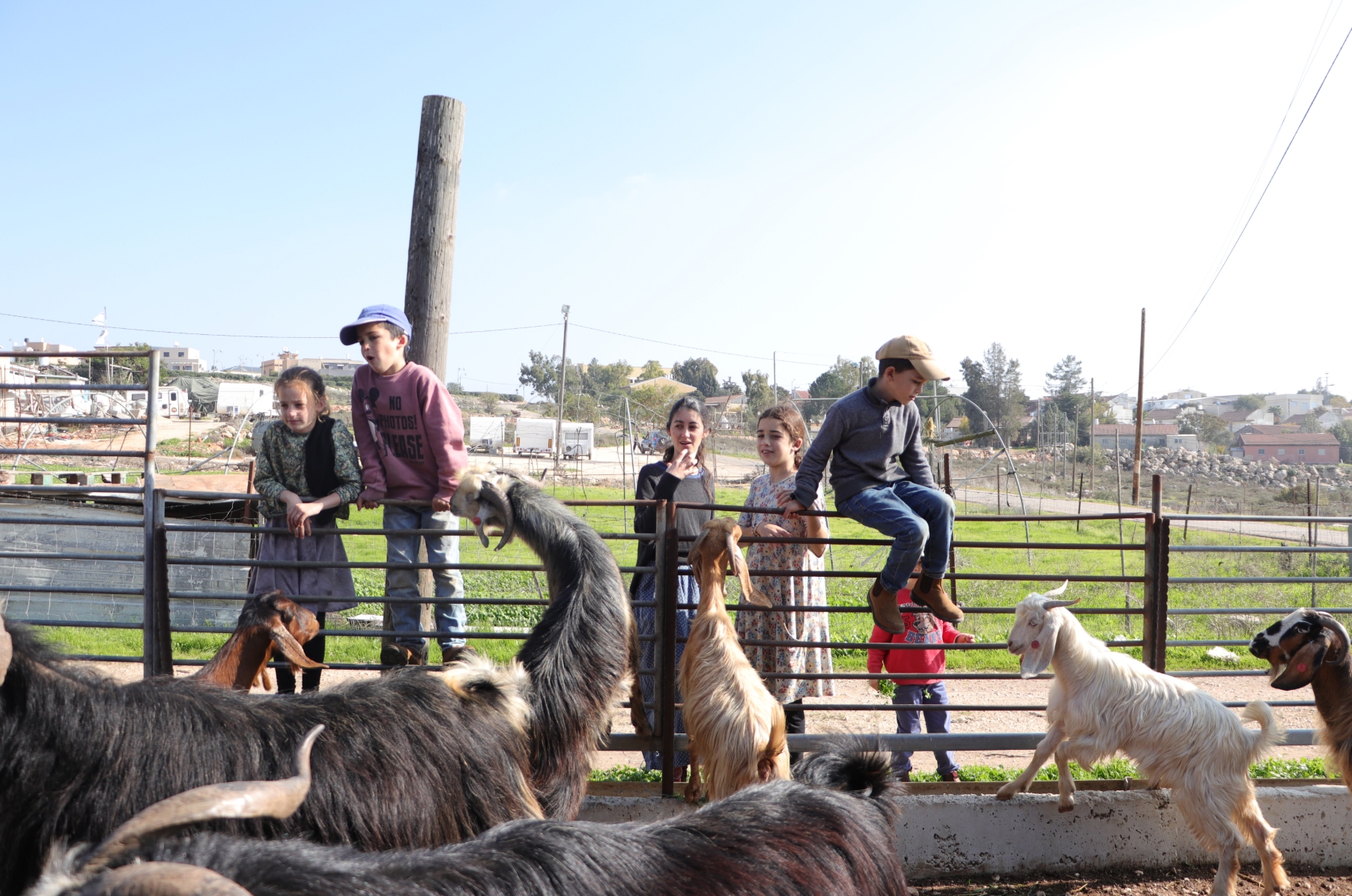
And how did you get physically and ideologically from Kfar Zitim to Kfar Tapuach?
"After a few years of settling in Kfar Zitim, I found a special and good woman from Tiberias. After a few years, we decided to move to Kfar Tapuach. I then had a herd of 200 goats, and with them, I walked on foot to Kfar Tapuach. The journey took about ten days; at nights I would fall asleep, and in the morning, the dog accompanying me would lead me to the place the goats went to. Since then, I am in Kfar Tapuach, working the land and serving Hashem".
Let's order how does the day of a farmer look like?
"I wake up early morning. In the summer, I go out with the herd at 6:30, and at midday, we return to the pen to drink water and rest. In winter, we go out at 10:00 and stay continuously until 16:00 in the afternoon, because in winter the goats get their drink from vegetation and so there is no need to return to the pen and drink. I have, without the evil eye, 11 children and close to 80 grandchildren, and they come to help me with the grazing. My son Shmuel was here in the morning, and he accompanies me a lot; even my granddaughter occasionally replaces me".
Unlike stories about shepherds, Herzlich does not play a flute. "In my free time, I sit on the ground in the mountains and read Psalms, but not read as you understand, but sing the Psalms, pray them. The chapters of Psalms are deep requests and supplications to the Creator of the world, and the melody is the Yemenite Jews' cantillation, which is like a beautiful and moving song. I also read verses from the Torah portion and study Torah".
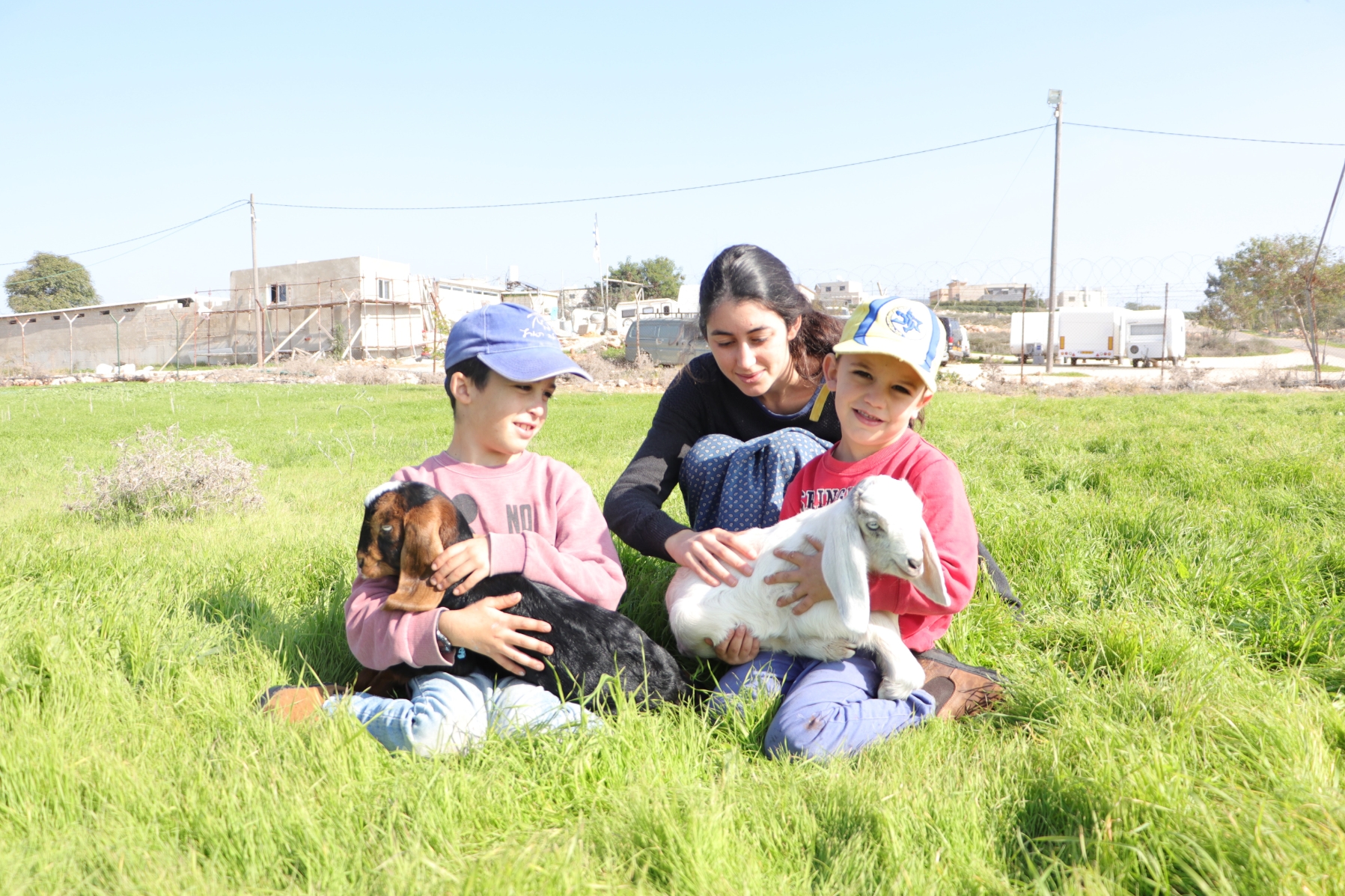
Herzlich wants to convey a message to the public: "I think all the technological progress has ruined humanity. Young people are constantly seeking innovations and excitement, not satisfied with the existing situation, which is very serious. They enter huge debts because they buy houses with money they don't have, and change cars for non-relevant reasons. Because of clothing purchases, they don't see the end. It's not for nothing that there is about a third of divorce cases because the current situation bores the new generation. Also, on the health topic, everyone eats 'junk food' all the time - junk food. It affects health; I am over seventy years old, and thank Hashem, I have never seen a doctor, and I am not sick. Even in winter, I don't catch a cold. I believe it is related to the industrial and sterile food that the new generation eats, and even when they are given allegedly healthy food like milk, it's cow's milk. If they knew how many vitamins and health benefits there are in goat's milk, which is rich in disease antibodies and most similar to mother's milk, they would slightly change the habit and benefit everyone's health, especially now when the coronavirus disease has erupted. In our place, we do not know this disease, and no one around here is sick, because we do not live in the city and with illnesses, but in the field and with health".
You talk all the time against modernization, and I see you are actually holding a mobile device, which is a product of modernization. Our forefathers did not hold such a device?!
"You're right in principle, but since I don't have a weapon I must at least have a phone for security; after all, this is a very hostile area," Herzlich explains apologetically, and to my question of what will the phone help against a terrorist, as it takes a long time for security forces to arrive, he explains to me "Once when the herd was huge - I had to distance from the area to find them food, and a lot of food. But today, after the goats have been stolen several times and I'm left with 50 head, which is an eighth of what was stolen, I don't need to distance myself from the village. I'm really close to the village, and there's a base very close to the grazing area. On every smallest problem - security forces jump immediately".
If you are in the field all day, what do you earn a living from?
"Thank Hashem I do not need a livelihood, my wife keeps the house, and I am with the herd all day long, and also eat from its meat. I don't spend money; I also have nothing to spend on. Occasionally I sell a goat or a buck; recently, I sold a big and strong buck to a Jew who paid 1,200 shekels for it, which is much more than the average of 800 shekels for a goat because males are worth double the value. It is also mentioned in a verse, when Jacob sent gifts to Esau, the verse says: 'Two hundred she-goats and twenty he-goats, two hundred ewes and twenty rams'. For every male, Jacob sent ten females, teaching that the male buck has much more value".
The conversation with Herzlich is interesting and flowing until he suddenly drops the drama I wasn't prepared for. "Unfortunately, I am a bereaved father," he tells me with tears in his eyes. "Do you remember the attack on Rabbi Binyamin Kahane and his wife Talia?" he asks me, and before I have time to answer, he continues with pain: "Rabbi Binyamin was my son-in-law, and his wife Talia was my daughter, may Hashem avenge their blood. They were murdered on the 5th of Tevet, 5761 (December 31, 2000), and left six orphaned children at home. It's a huge tragedy. It's so hard to lose a precious daughter. But even in the grief, there is a world of kindness. My daughter, Ra'ya, and her husband, David Bloch, who was a company commander in the army, took upon themselves to adopt the children. The little orphan who was only two months old nursed from her, because she was also nursing her child, and she raised her like a real mother. To this day, she calls her mother, they poured their souls into the children, and her husband left the army for this purpose. Thank Hashem, everyone is thriving today".
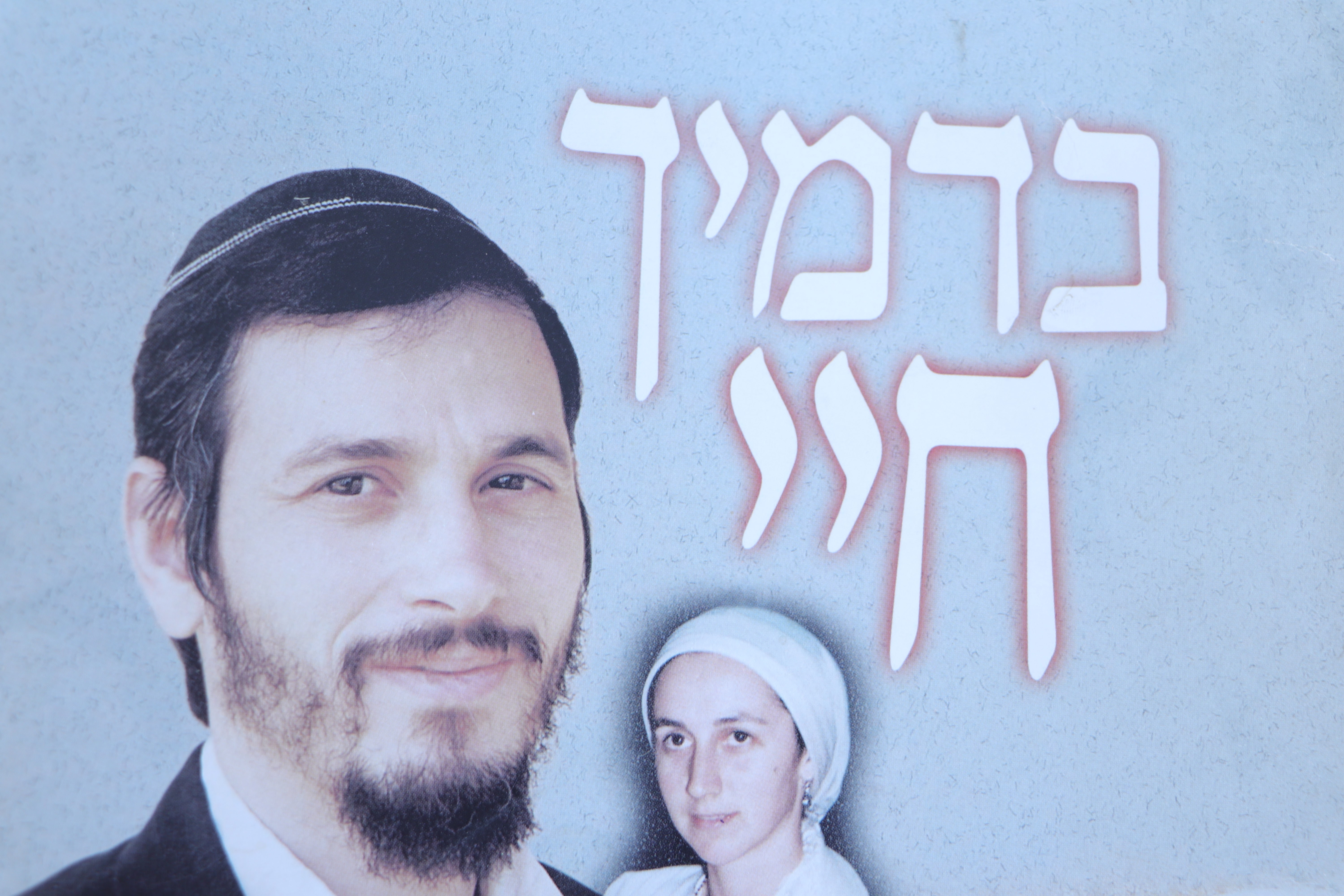
It seemed to me that the conversation with Herzlich was ending on a fragile note, but he adds a sentence to conclude: "After the funeral, when we returned from Mount of Rest, I told everyone it's very sad, but we need to remember that it is good for them in the exalted place they have reached, and it comforts us a bit".

